Table of Contents
Should you punish a toddler meltdown or emotional outbursts in young children? Find out what research says to effectively stay calm through meltdowns, crying, and tantrums. Find out how to coach children through meltdowns without being permissive.
With two young children fifteen months apart, some days, it feels like I’m walking through an emotional minefield. Toddler tantrums are an ever-present threat, and I’m never sure what little things will set my young children off and make them feel angry. When they were younger, a diaper change was often cause for angry outbursts. Now that they are older, almost anything is fair game to trigger tantrums.
For example, in the food court at the mall, my strong-willed daughter had a temper tantrum because her bagel didn’t have enough cream cheese. Then, my sensitive son had a toddler meltdown in the parking lot after grocery shopping because I undid his car seat when he wanted to do it himself. See what I mean about little things? Sometimes I wonder if my kids even know what good behavior is!
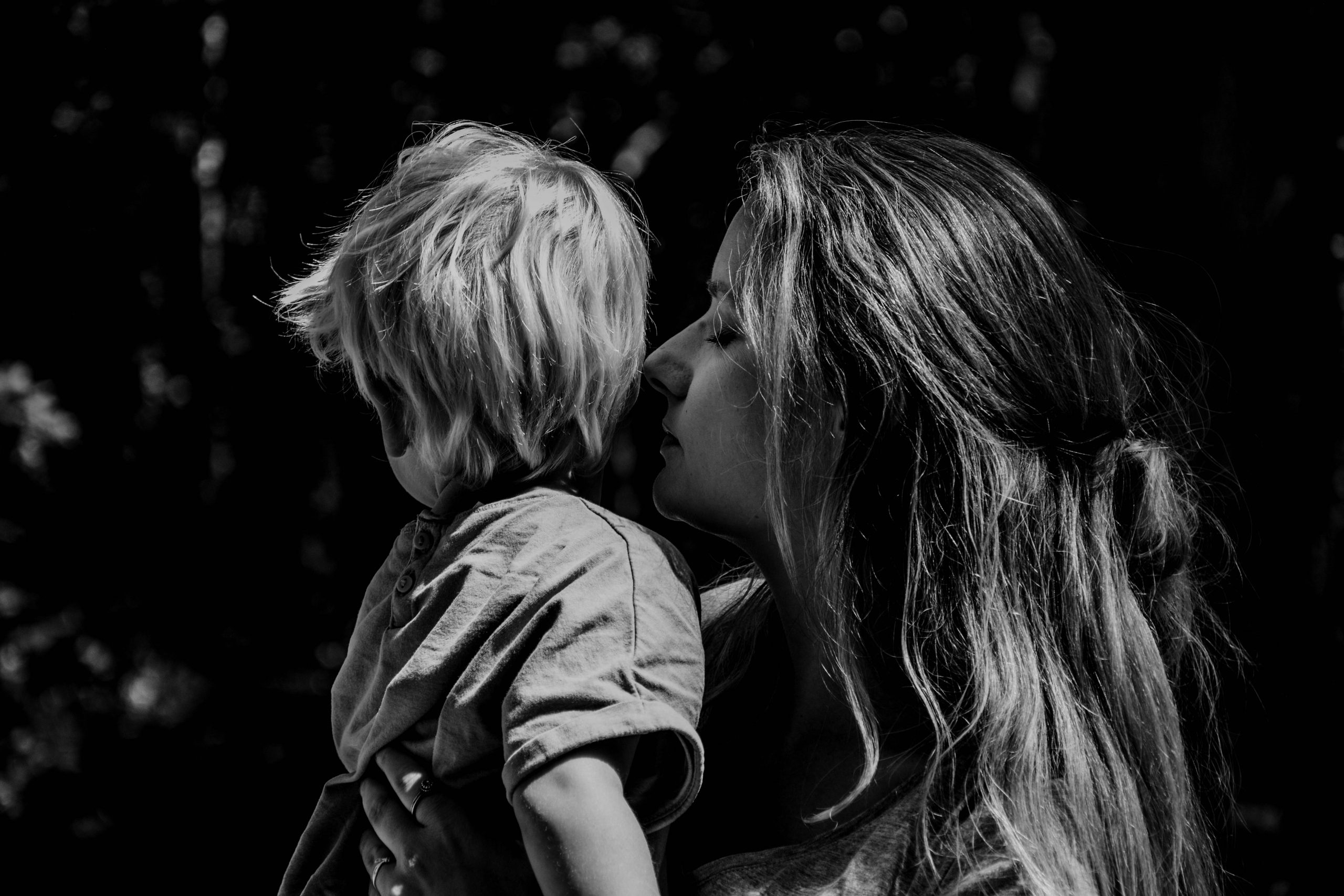 I was tired, and two back-to-back meltdowns in public places had left me with little self-control, and I was struggling to stay calm. In moments like these, I struggle not to make a big deal out of my child’s tantrums. Tantrums pass, but still, I often feel angry and like I’m losing it, and I battle to control my own frustration and stay calm.
I was tired, and two back-to-back meltdowns in public places had left me with little self-control, and I was struggling to stay calm. In moments like these, I struggle not to make a big deal out of my child’s tantrums. Tantrums pass, but still, I often feel angry and like I’m losing it, and I battle to control my own frustration and stay calm.
Angry outbursts are a normal part of life for us at the moment…and I’m not just talking about my young children. Toddler tantrums have a way of triggering my own feelings and testing my self-control and capacity for empathy. As much as I want to stay calm, this second year of parenting (you know, the one with toddlers) is proving more challenging than I anticipated. Good behavior is hard to come by these days, and I’m just as guilty as my kids.
Related reading: Positive Parenting Strategies for Difficult Toddler Behaviour
Angry Outbursts Are a Learned Behavior
In those moments when I need to get the grocery shopping done or all eyes are on me, it can feel especially tempting to punish tantrums and emotional outbursts. A toddler meltdown always seems to happen at the worst time!
I mean, I don’t want to raise kids with no self-control who have temper tantrums at the drop of a hat.
Even if I’m in the privacy of my home, dealing with my child’s behaviour in certain situations can feel impossible. The last thing I want is to reinforce bad behavior and let my young children think that temper tantrums are an effective way to get what they want.
Who wants a child who thinks it’s okay to scream when his toast is cut incorrectly or a daughter who throws a doll that isn’t easy to dress?
The truth is, no one does.
But my response to their emotional dysregulation isn’t helpful either. My go-to response to temper tantrums is getting mad. I shout, and I cry, and my body language tells my kids that I am no longer a safe place for them to turn to. I have my own version of a toddler meltdown. Kids learn from what they see modeled for them. If I can’t stay calm and regulate my own emotions, how can I expect my very young children to do the same?
Does Permissive Parenting Prevent Tantrums?
But should you give in to your toddler’s tantrums? What about your older children?
In the heat of the moment, the most important thing to handle tantrums might seem like placating them to make your child’s tantrum stop. A toddler tantrum is a fearsome thing and strikes fear into the hearts of most parents. But kids learn quickly that temper tantrums can be an effective way of wearing you down.
Permissive parents tend to avoid discipline or addressing their child’s behavior in the interest of avoiding confrontation and more tantrums in the short term. It may seem effective, but it’s not the best way to handle tantrums. They want to create a safe place for their kids, but children feel safest when they have consistent and firm boundaries. Unfortunately, in the long term, this style of parenting leads to children who have poor self-discipline and little emotional regulation.
Children with permissive parents tend to be more rebellious and defiant. Older children may have lower persistence and more antisocial behaviors when compared to their peers.
But if you aren’t supposed to give in to the temper tantrum, should you punish it instead? No. A toddler tantrum is your child’s way of telling you something.
The answer to permissiveness isn’t punishment. You can’t prevent tantrums by adding to your child’s dysregulation.
Related reading: This is the Crucial Difference Between Positive and Permissive Parenting
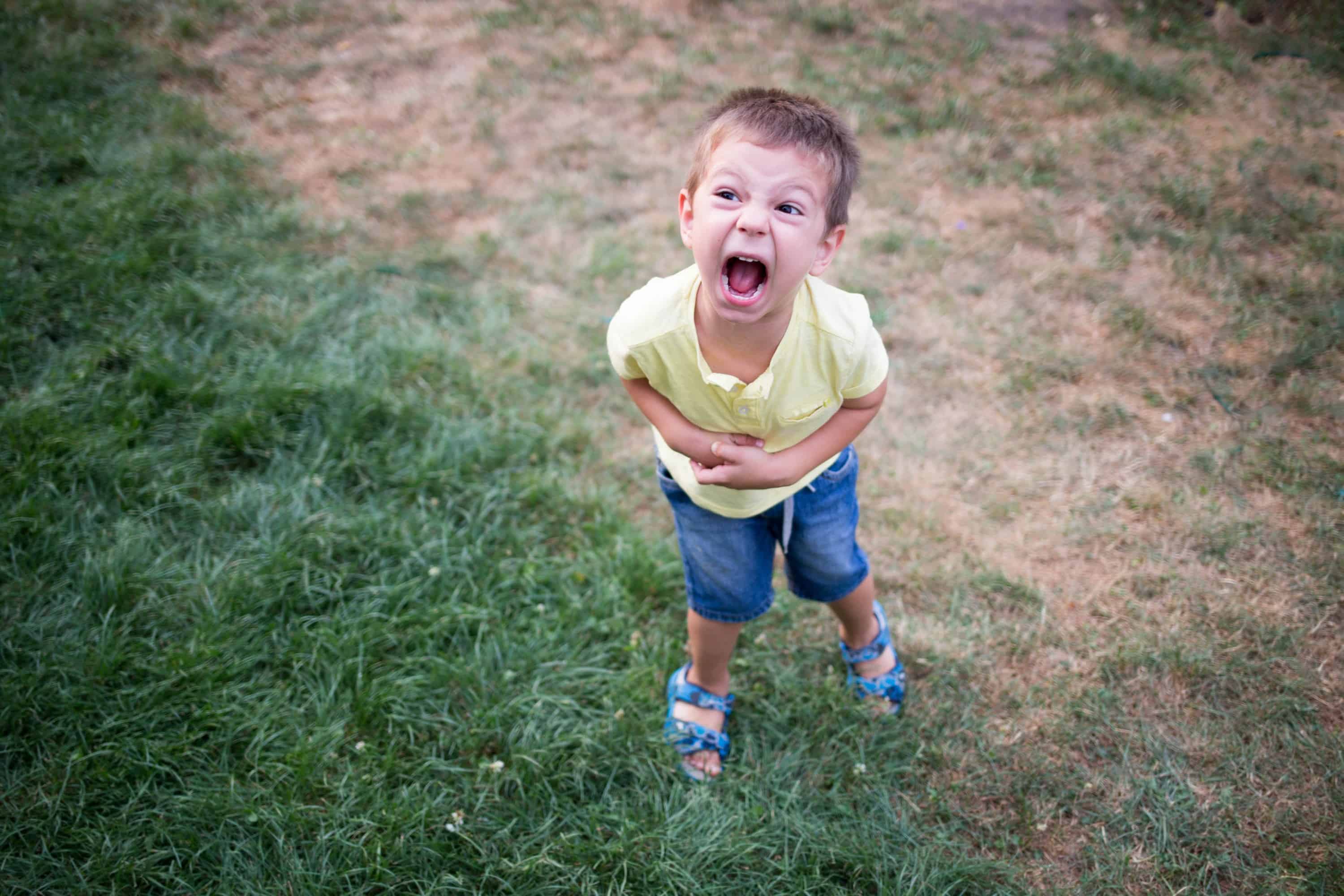
Why Punishing Temper Tantrums Isn’t The Answer
Research shows that how we react to our children’s emotional outbursts or challenging behavior predicts how well they will cope with these same emotions in the future. Young children are in a tricky stage of child development. They learn how to experience and react to emotions in a positive way from our reactions. We have to validate their emotions and praise positive behavior instead of focusing on negative actions. The first place you can start is learning more about positive discipline.
The first year of parenting is hard, but I think the second year may be harder. Older children require a new level of patience, compassion, and empathy because they are trying to assert their independence and learn about the world around them. It’s easy to lash out and punish them for big displays of emotion. But there are other ways to prevent tantrums.
Research on Punishing Temper Tantrums
- When we encourage children to control their emotions rather than validating them, they become more distressed when faced with negative emotions. For example, saying “Stop crying” or “Get over it” does more damage than good. Find more on this study here.
- If we repeatedly minimize our children’s emotions, they become less likely to be self-aware. Also, they exhibit more outward signs of anger. Their temper tantrums can get worse. Children who have the space to express emotion tend to be more socially aware and less angry. Read more here.
- Children who experience punishment for their negative emotions tend to be more reactive. See the study here.
- Finally, punishment as a strategy in and of itself has been proven to be ineffective. As illustrated in the research findings above, punishment, in general, fails to teach moral reasoning or good behavior.
In contrast:
- Young children whose parents calmly coach them through their anger have less intense temper tantrums. These children also exhibit less anger overall. Read more from this source here.
- Mothers who address their children’s negative emotions positively in calm and thoughtful ways foster better “emotional balance” in their children. Find the source here.
Other Ways to Parent Our Children When They Have Temper Tantrums and Meltdowns
Tantrums are a normal part of childhood. But that doesn’t mean we should let our children’s temper tantrums go unaddressed. And punishment doesn’t work the way we want it to.
So, what is the answer to help young children have fewer tantrums?
Tantrum Tips Based on the Research
Stay calm and Have Self Control
This can be especially challenging, especially when we feel rushed, pushed to our limits, or out of resources. However, parents who stay calm have the greatest success when mediating a temper tantrum.
Acknowledge and Validate Their Feelings
For example, say, “You’re upset. That’s hard.” This lets them feel heard and lets them know you are a safe place for them when they are struggling with big feelings.
As a result, children feel empowered to move on because you haven’t dismissed or minimized their feelings. Using the bagel example, I tell my child it’s okay to be frustrated. It’s hard not getting exactly what she wants. At the same time, she can’t throw the bagel away.
A temper tantrum is often an outward display of internal dysregulation, which is a perfectly normal part of child development. But we can help our kids learn how to cope with their feelings in a healthy way, which will mean fewer tantrums.
Identify Tantrum Triggers
You may be able to prevent tantrums if you can identify common tantrum triggers. Now, the idea isn’t to avoid these triggers, but you can help your child prepare for them and manage their emotions.
Redirect Behavior
Redirecting behavior can be a helpful way to manage a strong-willed child. Again, with the bagel example, this would be something along the lines of, “Do you want more cream cheese? All you need to say is, ‘More cream cheese please?'” Then wait for them to comply. You can also encourage a non destructive way to deal with their feelings. Praising good behaviour is another effective way to encourage fewer tantrums. Remember, good behavior is learned behavior.
If their temper tantrum is more about raw emotion than an actual event, there are wonderful strategies for calming older children that can be found here.
Related reading: The Whole Brain Child – The neuropsychology behind why addressing the child’s feelings first, then disciplining, is one of the best ways to handle emotions.
Positive Time-Out
If children are struggling to regulate, a time-in or a time-out can help greatly. When my children can’t compose themselves, and we are able to, I take whoever is struggling to his/ her room or to the side of the interaction. I stay close to my daughter. My son needs space, so I tell him I’m available when he needs me.
Sometimes, emotionally overwhelmed kids need nap time, particularly if they are very young. You can spend your time out reading a story, or you can give them a massage. The deep pressure of a message can help calm their nervous system and prime them for a restorative nap time.
Embrace the Power of the Pause
Staying calm and taking the time to pause before engaging with your child is a great way to prevent a power struggle during temper tantrums. Almost anything can trigger tantrums, and your child needs you to empathize with them, not assert your own ideas into the situation. Wait until they are calm enough to listen to your words. In some situations or with some kids, that might be right away. For others, this could be a much longer process. All you can do is wait.
Hug It Out
Children feel more connected to us and more secure when they are hugged in times of intense emotion.
Research on responsive parenting shows this approach is the most powerful way for children to better regulate their emotions in the short term and show more appropriate responses in the long term. Good behaviour happens when kids feel good about themselves and are connected to us.
Temper Tantrums Are A Form Of Communication
Learning to deal with big emotions is challenging, even for adults. I feel angry often and sometimes feel like throwing a tantrum myself. With three kids under the age of six, I’m likely to face a few more seatbelt debacles and food court meltdowns. Unfortunately, there are no magic bullet tantrum tips or discipline miracle cures that will prevent tantrums.
But, by coaching rather than punishing my kids for their emotions, they are learning to express themselves more appropriately and manage their feelings better. Good behaviour happens when kids feel seen, heard, and respected. Learning how to handle temper tantrums more effectively can go a long way in raising resilient kids.
Additional reading you may find useful.
Bad Parenting: What To Look For and How To Change It
20 Tips on How To Be A Good Mom – The Easy Way
Front-Loading, Redirection & Connection: 3 powerful strategies for your strong-willed toddler
This is the Crucial Difference Between Positive and Permissive Parenting







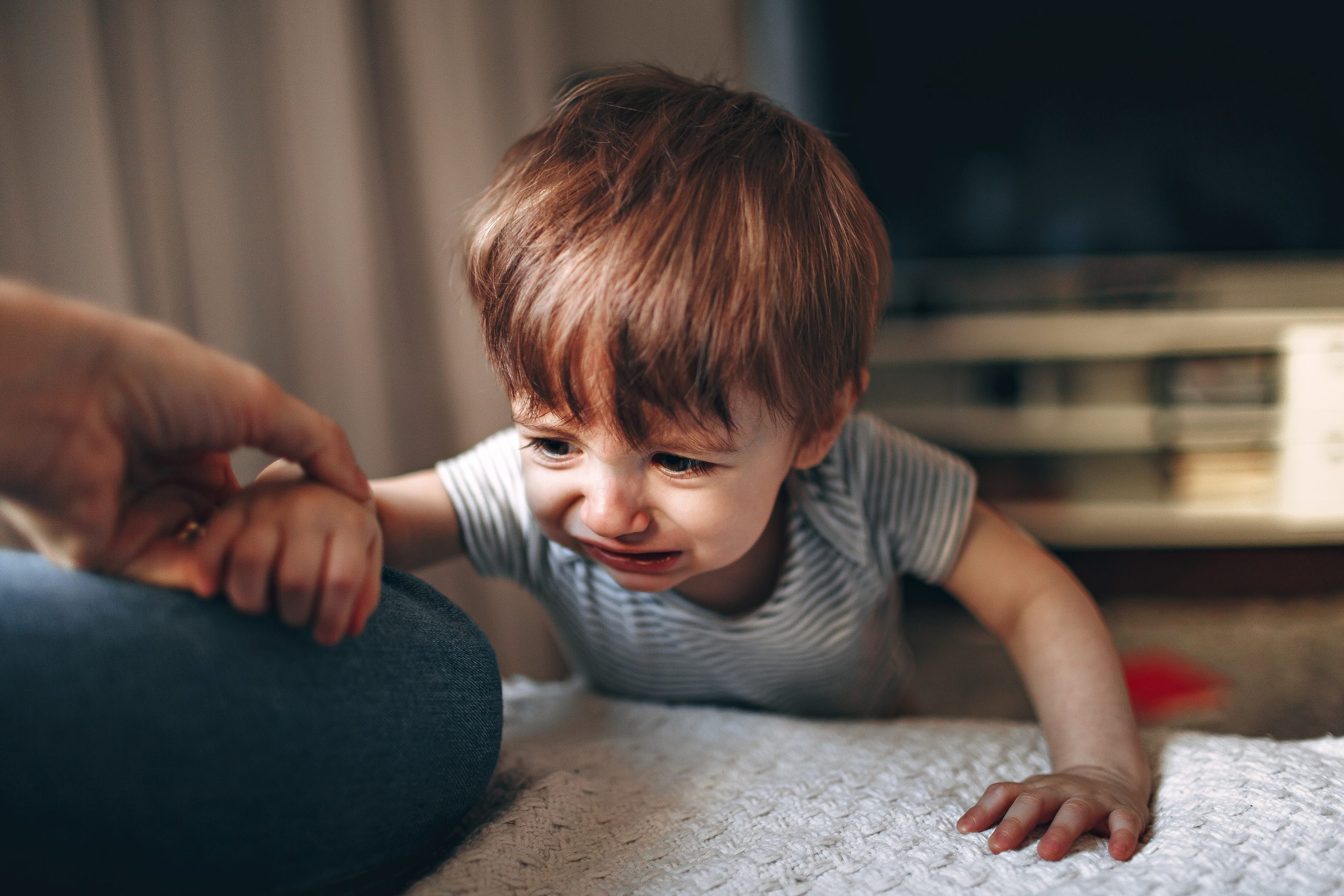
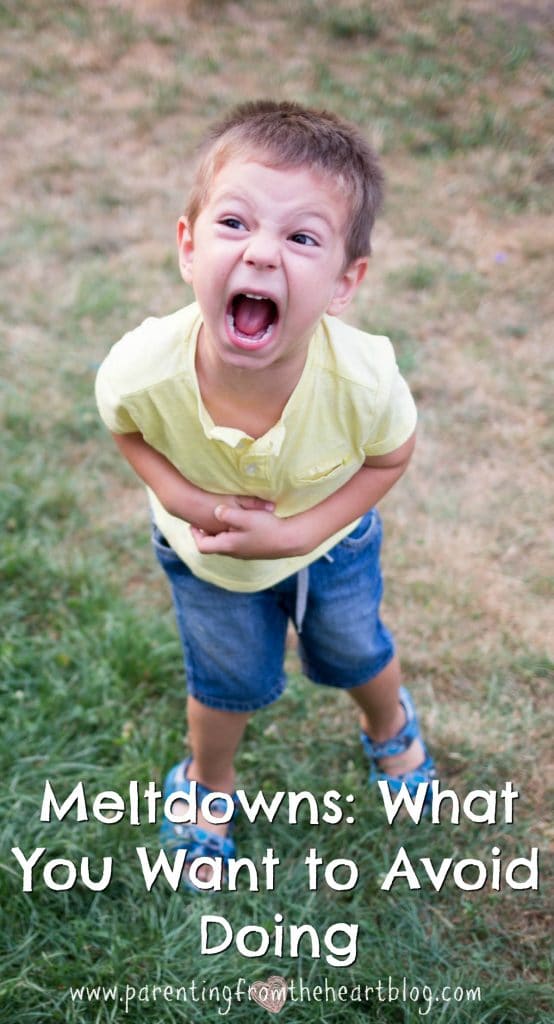
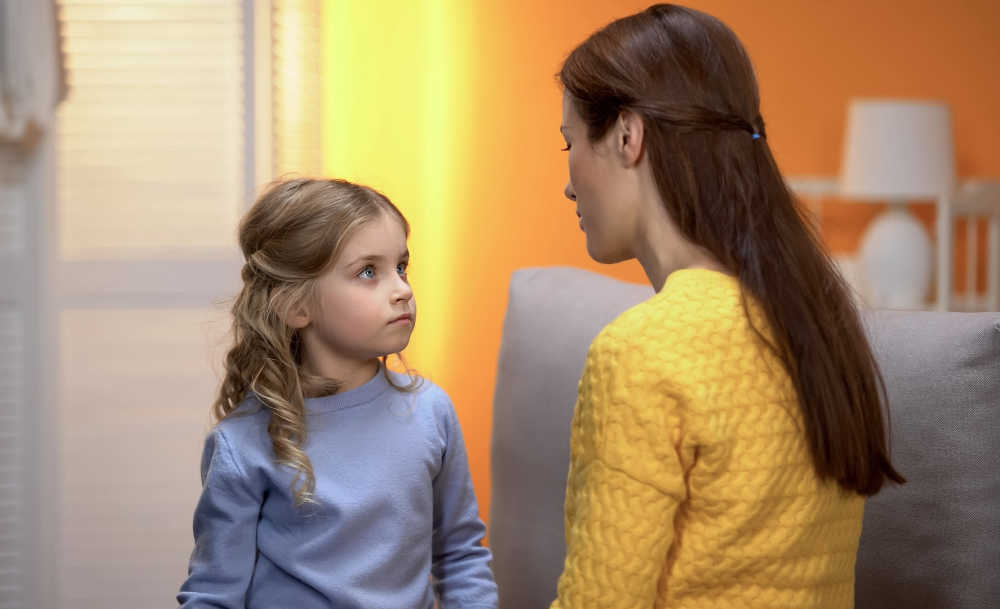


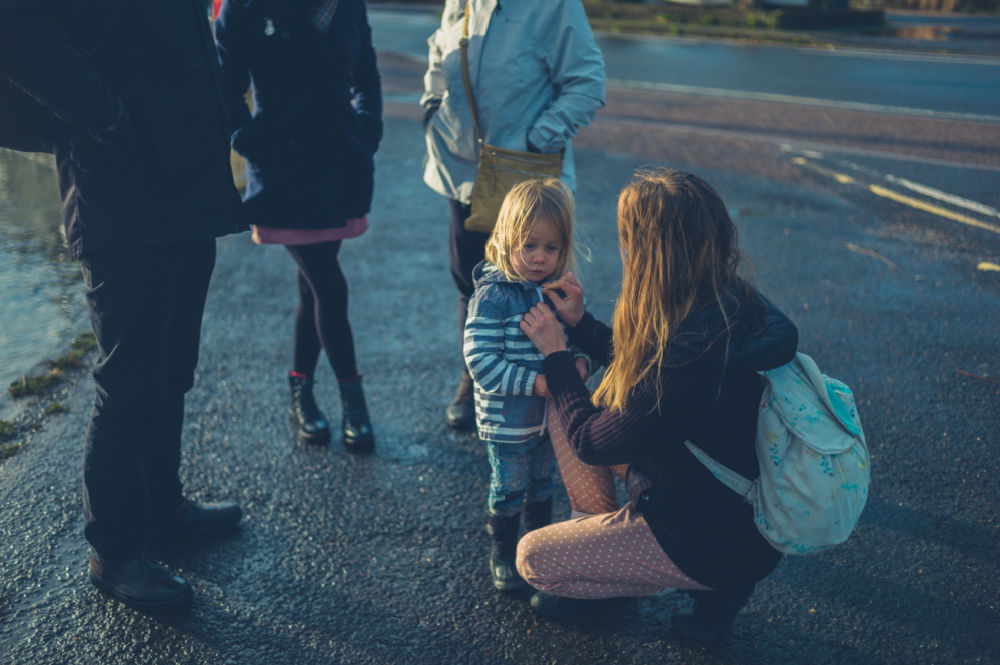
Great tips! I am in the midst of it with a 2 year old and a 3 year old boy. Do you have any suggestions on how to “wait until they’re calm enough” in public situations? Is it best to let them throw the tantrum while everyone watches or to remove them from the public eye to calm down or does it just depend?
Bree, that’s such a great question about kids having tantrums in public. I really think it depends on the child. With my daughter, I could remove her. With my son, I can’t. So I just have to wait it out and tell passersby that it’s okay. But it’s so difficult. One day, I was in the supermarket parking lot and had to wait ten minutes for my son to collect himself and come out of the car… And another, I had him refusing to come out of the public restroom with pants on. I just had to painstakingly wait it out. It really isn’t easy.
Such a great list. We’re just wading into these waters, and I’m going to print this off and keep in handy!
Thanks so much, Kate! It makes me think I should make a printable for these tips for dealing with tantrums….
Great suggestions!!! I’m one who doesn’t really punish tantrums. Most of the time, with my daughter anyway… she doesn’t even realize she’s doing it so I feel punishing her for it wouldn’t really work.
Really great tips. But what shall you do when your child mimics another child?
Great question. In my own experience, telling my child to stop, pulling them aside, asking why they have done what they’ve done and then giving them alternatives to the mimicking behaviour has helped. This is a great resource for disciplining children in general.
Yes please. So handy to have as general reminders and a printable would be amazing!
My 3 year old doesn’t like to be hugged, especially if he’s frustrated. Sometimes offering makes him more angry. Can you suggest an alternative?
This is an excellent question. My son is the exact same. What I do is I tell him I’m there for him when he’s ready. Sometimes he need a fair bit of space but I stay near by and wait. I hope that helps ❤️
We are dealing with a very strong willed 21 mth old girl right now. I constantly feel defeated. It is the same issue every day – trying to climb/jump in chairs, throwing food in the floor (right after i tell her to stop she looks me dead in the eye and does it again), and splashing in the tub to the point that I’m soaking wet. The tub part has gotten some better, but the other two lands her in time out at least twice a day. On top of all of this she throws royal fits, especially when i send her to time out. She won’t stay in time out so we spend a lot of time putting her back in time out, trying to calm the tantrum, explain again why she’s in time out….it goes on and on. Suggestions are welcome please, thanks!
My daughter is 2 1/2 and behaves similarly to what you described. I don’t have any suggestions that you haven’t tried, I just wanted to let you know that you’re not alone and it sounds like you’re on the right track. .
I dont agree with this at all. If your in public and your kid is throwing a fit, PLEASE for the love of God leave the building! Not only is your child embarrassing themselves and you, they are stressing the other patrons in the store. Dont give me this “but they are just kids” garbage either. I raised 5 and now have 2 of my grand kids.
The problem is, there are no consequences to kids anymore. Now don’t get me wrong I don’t believe spanking is the answer to every thing. But there are exceptions. How ever, if your child is in public, and throwing a tantrum, REMOVE your child from the situation! Until they can calm down.
My kids were taught from the day they came out of the womb. Screaming, NO NO NO! Didnt happen.
Throwing themselves on the floor, I walked away and let them throw it.
Point is, YOUR reaction to the situation is what reflects on them. If your stressed from it, they got what they want. If you give in to it, they got what they want. If one of the parents throw tantrums (throw things, stomp off, slam doors etc…) The child will react in the same mannerisms.
I have 2 here, 3 and 5 years old. Their mother still talks to them as if they are babies. Therefore they act like babies! Laughing at a childs behavior or reaction, (throwing a tantrum etc…) teaches them it gets a reaction there fore they will continue to get the reaction. This is nothing more then common sense! Even when a child is 1, laughing at a tantrum is NOT the appropriate reaction from an adult. It should be corrected that young. Save yourself some heart ache,and stress. Use common sense. My daughter think its funny when my grandson (3) says something inappropriate, his reaction? To keep doing it! And so on….
They act completely different with grandma. Why? (I have them 80% of the time) Because they know grandma does not accept this kind of behavior. They dont throw tantrums in the store with me, I removed them the first few times and they stopped it. Throw a fit over food, I remove the food. This is what you have, you can eat it or you can go with out and be happy you have food to eat. They 9 times out 10 will change their attitude about it and eat what they have. If they persist on throwing a fit, they do so in their room, alone.When they are finished they we talk about what it accomplished to throw a fit. My grand kids tell people “My Grandma don’t play” Or “My Grandma is hard” In a childs eyes, yes. In an adults, its call parenting and discipline.I dont spank them, beat them or anything of that nature. I just let them know and SEE what is appropriate. I refuse to raise them in a manner that makes them think they are entitled. in any way. They want something, they EARN it. Kids deserve respect as well as adults. They learn that from watching adults and being treated with or with out it. Now ask yourself, if you see an adult throwing a fit because their food order wasnt right, (screaming and yelling) what is YOUR reaction to it? Keep in mind, YOUR child is watching YOUR every move. YOUR child is LISTENING to YOUR every word. Want to know why your child acts the way they do? Look in the mirror. Just saying………
Shari, I’m not sure if this is a typo, but it seems like you agree with most of this post. You absolutely should remove your child from the situation and coach them through their struggle. You should be their parent and teach them how to respond calmly. The reason children meltdown more with their parents as opposed to grandparents or other caregivers is because they feel the safest with us. Here is a reference. Just scroll down to After School Meltdowns: Why is my child so grouchy after school.
With respect to food, in most cases, it’s best to empathize, wait, and if they don’t choose to eat the food, as you said, remove the food and save it for later.
I feel like either I’m misunderstanding your comment or you misunderstood the article. I would love further clarification if you have the time.
Best,
Alana
With respect to sending a child to his or her room when she’s struggling with emotion, I highly suggest reading this resource.
Shari,
If you don’t agree with the way your daughter parents, maybe that’s a reflection on the way you parented her. Just a thought.
I see a difference in the article and in what you’re saying, I agree with you. My son started to throw fits at 3, I ignored him and left the room or just kept doing whatever I was doing without looking at him. I only responded when he quit acting up,depending on what the fit was about he might have gotten a spanking after he was done with the fit ,with an explanation of why he was getting a spanking.(NOT BEATING,THERE IS A DIFFERENCE). He could tell by my lack of response that I wasnt happy with how he was acting.My son wanted a reaction out of me and I wouldn’t give him one. He learned very fast that, that’s not how you get what you want and sometimes you don’t get what you want at all. Sometimes talking and hugging it out is extremely unnecessary and just makes them comfortable with making a scene. He’s now eighteen and a kind hearted,independent, opinionated, young man that knows how to manage his emotions appropriately. He works hard and is on his way to College this year.My son always knew I Loved him even when I ignored him for a short period of time. I’m proud of my son, he is more mature and emotionally sound then most 30 year olds I see now in days. I refused to raise a basment dweller. Most people parent without real discipline for their children because it’s easier on themselves and that’s selfish, no one likes to see their child upset (it killed me inside)but sometimes it’s necessary for teaching our children how to survive as an adult.
I aim to do these things, but as a single (adoptive parent) of now a 3 and 4 yeAr old, 14 months apart, I need help. How do you manage your own emotions? I don’t want to be the “no” Mom all the time and I certainly don’t want to yell but I find both of those things happen….. then I feel so guilty and am very hard on myself in turn. Any suggestions would be wonderful. How do you manage your emotions in these times when you’re stressed and tired and the meltdowns just keep coming?
These are great ideas, do you have tips, resources on managing my own “outbursts” I have three yr old twin daughters and a two year old son (16mo apart) so when all three are melting down, needing me to do things for them, and fighting with each other all at once I find it hard to stay calm, all these stratigies and many more I have reaearched all seem to fall out of my head in the hest of the moment and the result is all four of us in a battle and tears. One at a time is obviously much easier to keep my cool and help them constructively but when we all get going it can be literally hours of “fixing” the situations! Basically at the end of it all I end up feeling like a bad mom who has yelled at her kids, often for things I wouldn’t ordinarily react that way to and I then have three upset and confused toddlers wondering why mom is so mad! I don’t want to keep reacting this way but I just need some better stratigies than what I currently employ! I try when I can to take my own time out but with them being so young physically stepping away isn’t always safe!
I think you could try to see the moment more clearly by standing still for a moment and think things true, Like: what is happening, why, and what can i do to make it better? But first Breathhh haha. Just try to remain or regain calm. Get a clear mind about the situation. Is it really so bad? Would you always be so mad about it or is it just a silly thing? Maybe count to ten when you feel your mind going crazy! Then react.
Ashley, my first suggestion is check your chemical levels. I spent the first 10 months of my daughters life feeling like you describe – turns out I had pnd and my body was chemically depleted.
You need to believe that you are doing the best for your babies. It is hard and you aren’t getting much time to rest or care for yourself. Please ask family or friends for help, it may even be a strengthening catalyst to your friendships.
The first few years are long and tough, but please talk honestly with your babies, children are egocentric and need to learn sympathy and compassion. They might as well learn it from you.
Best of luck.
I’m really glad I read this but I have to admit that I feel like acknowledging their feelings is sarcasm or condescending and then hugging him seems like it was OK that they acted like that. maybe I’m just seeing it from the wrong point of view.. I really have to practice the calm . If my kid threw a hissy over food I’d throw it clean away. It’s like you get what get and you don’t throw a fit where I come from.. then again I have anger issues and all that you said because my parents were stoic, like no emotions and I wasn’t allowed to have feelings .it was weakness or you’re a failure if you are letting feelings show..I’m working on changing my mindset from fixed to growth so this article is getting printed!!! Hung up where I see it daily.
Hi Lisa,
I really appreciate you taking the time to tell me your situation and for addressing your concerns. When we haven’t been parented in a way that teaches us that all emotions are okay, it’s natural to think expressing understanding would sound condescending and hugging seems like positive reinforcement. The key here is not being a permissive parent. As soon as we give into screaming demands, we encourage the child to have more meltdowns. The first step to getting kids to calm down is to acknowledge how they’re feeling. And if it feels like it doesn’t sound genuine at first, that’s okay. Just say the words (i.e. “I see you’re so mad you threw that toy”) and slowly it will become second nature. What you’ll likely find is your child’s outbursts will become less and less frequent and won’t last as long. Once he or she is calm, then you use discipline (i.e. “This is what I made for dinner. You can choose how much you eat but I’m not giving other options.”)
I hope this helps. Please feel free to comment again if you’d like further clarification or more insights.
This article was a timely resource for me as my 16 month old is feeling ALL the feels in the last month or so. Not to mention, I have a 2 month old. It’s great to hear from a mom with littles who are close in age because it’s truly a completely different ballgame. My son is a reflection of me in so many ways and it’s humbling seeing this play out day to day. As he’s entering the toddler years and exhibiting STRONG emotions without much language, the level of frustration for both of us can get extreme. I’ve seen firsthand that telling him to stop crying or “calm down” just intensifies his emotions in the moment. It’s so hard to think and then react when he’s having a meltdown but I’ve been trying to be intentional by responding calmly or redirecting him calmly. I love what Proverbs 15:1 says, “A soft answer turns away wrath,
but a harsh word stirs up anger.”
I think some can misinterpret this kind of approach to parenting as being “soft” and not having boundaries or consequences. That is so untrue, at least for me. I can count on one hand the amount of times my father yelled when I was a child. He is the most gentle and kind man that I know. Of course he disciplined my sister and I, there were always consequences for disobedience. But I also always knew I was loved and safe. I know it’s an incredible challenge but I would think if I approach my parenting with a think first, act second kind of way, then I’ll see these fruits of kindness, gentleness and respect exhibited in my children, even if it’s years down the road. It’s so much more work to parent with a think first, act second approach but I think the benefits are highly rewarding. Thank you for posting this.
I have a problem with my 14 months old son. He is starting to scream and hit everybody at home. Even if I talk to him nicely or I give him a hug and comfort, he still do it since he couldn’t understand yet and he is too young to understand it. If I let him stop, he do it more. I really feel shy when he starts to hit everybody and scream to everyone. Actually, I don’t let him watch TV at all but his 30 months old cousin is always hitting him whenever they play. So, I guess he thought hitting others too is okay. I really don”t know what to do. I would appreciate if someone could tell me what to do. Thanks in advance.
I agree about staying calm when approaching your angry child.
What is your suggestion on how to react/approached your daughter right after she pushed her brother?
he went to her because he wants to play with her, but She pushed him because she was angry, she was angry because I left.
My husband yelled at her and try to put her in time out. He thinks that I’m not disciplining my daughter enough
How do I help a neighbor couple who repeatedly scream and swear at their pre-school toddlers, due to their permissive parenting causing them to blow up all the time? How do I approach these people? The wife was sexually abused as a child and they are both fast food workers, little education. But they take care of their children and aren’t drug users, they just don’t know how to parent.
I gave them a supper nanny book on dealing with parenting problems, but I doubt they ever read it.
Please do you have advice?
This is so helpful. We can often forget statements like, ‘calm down’ may seem normal and self-explanatory, but our kids have only been on the Earth for a little while and they’re still learning what’s what.
Governments really should take this type of parenting more seriously and offer courses – imagine how much less hurt and suffering and acting out of older children if we all just learnt how to let them express and validate their emotions in a positive way from early on.
hi there ,
my baby is 2 years old , whenever I say No you can’t do this she reacts by crying continuously , should I leave her crying or calm her down ?